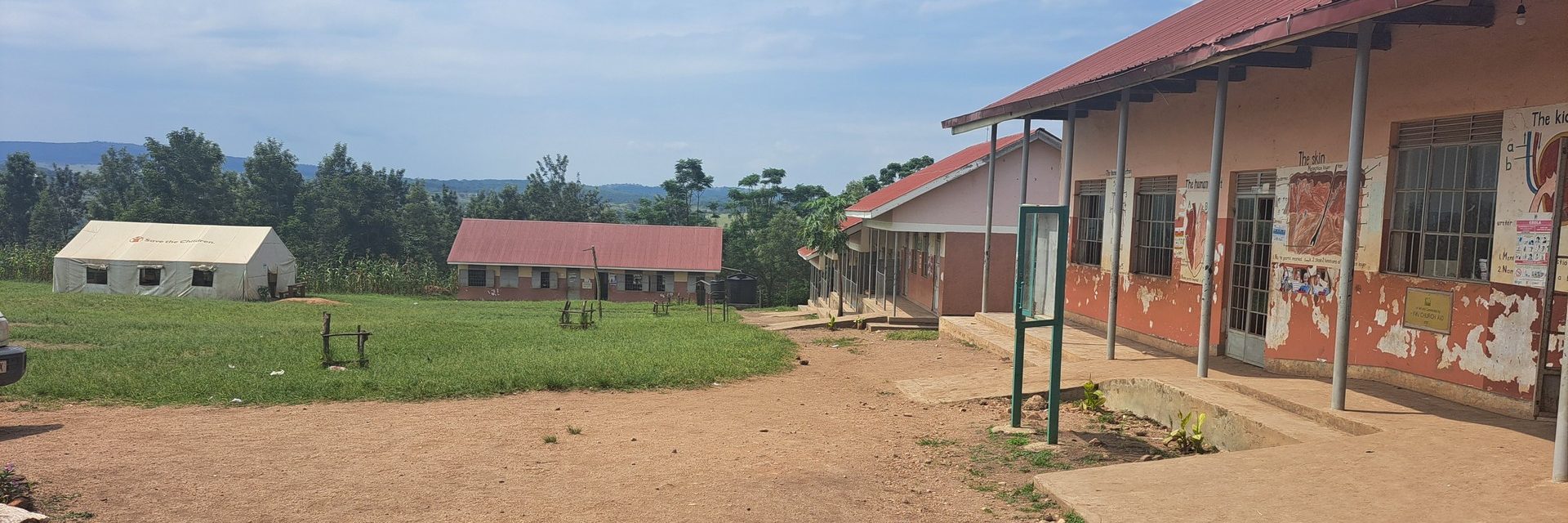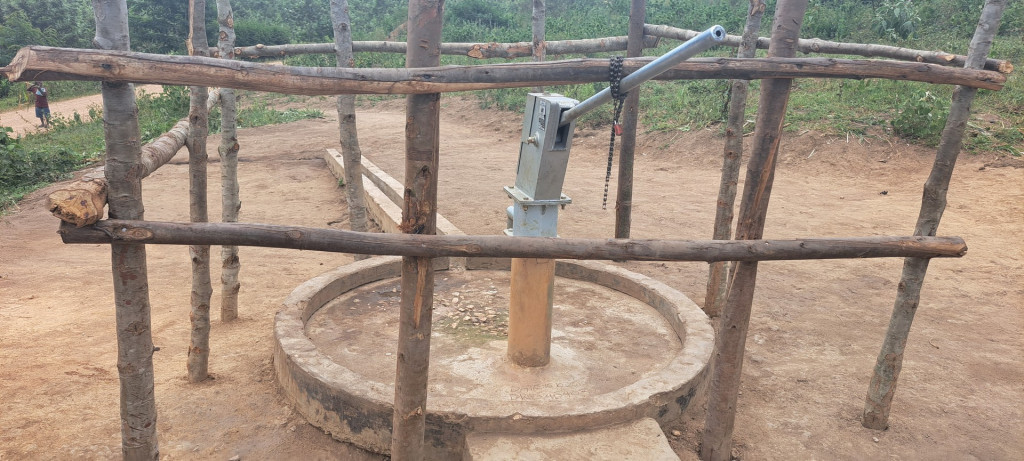Rwamwanja refugee settlement. Kamwenge District, Uganda
In collaboration with

July 2023 – july 2024
Most of the refugees in Rwamwanja camp in Uganda do not have adequate water, sanitation, and hygiene facilities. Almost half of the refugees are of school age, and these deficiencies are maintained in the school. Solar pumps ensure clean water and hygiene for schoolchildren and their families.
Objectives
- To improve the quality of life of boys, girls, women, and men in the Mahega primary school and its neighboring communities.
- To increase sustainable access to safe and clean water for Mahega Primary School and surrounding communities.
Beneficiaries
2,351 direct
2,101 children under 15 years of age and 150 women.
3,000 indirect
1,000 children under 15 years of age and 1,100 women.

On the ground
Lack of water and hygiene in the educational and health centres of the refugee camp.
In the Rwamwanja settlement, most of the refugees are Congolese fleeing violence. The problems of access to water, sanitation, and universal hygiene are notorious and extend to the host communities. The hygiene is poor and sanitation facilities too. According to UNHCR’s monthly reports, the average daily water per person per day in the settlement is 13.7 litres, below its standard of 20 litres per capita per day. The available water points are located within a radius of more than two km from the Mahega Primary School, and the springs, which are also part of the available sources, are unsafe to drink as they are always polluted.
The only water source available to the school is a rainwater collection tank, which makes access to potable water difficult, especially in the dry season.
Handpumps are the most widely used water pumping system, but they are prone to breakdowns and the time it takes to pump the water leads to long collection lines. Long distances and delays in collecting water expose children and women to violence, including sexual violence. This situation causes great tension in the population. Current access to water in the settlement is only 65%, and for those who are forced to buy it, a 20-litre jerrycan sells for US$0.29.
Lack of adequate water and sanitation also occurs in health facilities, causing poor hygiene practices. On the other hand, faulty maintenance of the facilities worsens the situation. Mahega primary school is one of the schools affected, which makes its students, especially girls, more exposed to violence and more prone to outbreaks of diseases related to bad water, such as cholera or diseases diarrheal.

In detail
The refugee camp community participates in the entire process, from planning and identifying needs to implementing activities and monitoring the project and its evaluation.
The construction and rehabilitation of the facilities will be carried out by qualified builders, who will be selected from the local population.
Parents of students and teachers at the school will participate in School Governance Committees, mobilizing public awareness and building a strong sense of ownership through social events.
We will form Health Clubs to promote good hygiene practices and the use and maintenance of the facilities. We will also create committees of community volunteers who will contribute to the training actions.
First, we will test the existing pump to determine the actual performance of the well. We will also carry out a water quality test. From here, we will design the system for the first year and it will provide water to Mahega Primary School and the surrounding community.
Solar energy will feed the motorization, allowing the operation of a submersible pump that will supply water to 2 plastic tanks with a capacity of 5,000 and 10,000 liters in a six-meter high tower. We will place three water points (1 in the community and 2 in the school) through distribution pipes. The project will reactivate and train the school health club and teachers on some of the key issues of school water, sanitation, and hygiene to improve hygiene behaviors among children. The project will reactivate and train the hygiene club, teachers, and the school management committee on operation and maintenance to ensure the sustainability of the facilities at the school, t. In the surrounding community, which the piped water system will also serve, we will establish water user committees and train them to manage the operation of public taps. To do this, we will hold a workshop to share the project and define responsibilities with key stakeholders and community awareness meetings on the critical requirements of the new water project.
Sustainability Perspectives
The project has been designed and will be implemented with the participation of UNHCR, the Central Government Office, the Kamwenge District Government, the National Water Company, the School Management Committee, and the Association of Parents, Teachers, and Students, which guarantees its viability and adaptation to the reality of Rwamwanja and the Mahega school in particular.
World Vision will continue to operate in the settlement with other existing projects, and the sub-county technical staff will supervise the project since they will be involved in it from the beginning. The school management committees (SMC) will manage the project, and the water user committees will be in charge of the operation and maintenance of the system. The committees will also be linked to the National Water and Sewerage Corporation, which is responsible for the settlement process and maintaining all water infrastructure.
The school authorities have the budgetary commitment to support the communities for the correct operation and maintenance of the rehabilitated systems to guarantee the sustainability of the various interventions The school structures will also be empowered to maintain the water, sanitation, and hygiene facilities through the development of their capacities in terms of management, operation, and maintenance of water, sanitation and hygiene facilities. The project will work with health educators and education officials responsible for implementing water, sanitation, and hygiene programs in schools to carry out regular school visits to track the progress of activities in the school.

